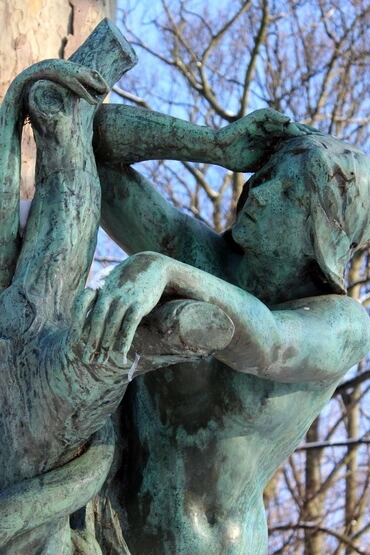Explanation of Genesis 3:1
By Brian David

Serpents represent what we know from our bodily senses, and the reasoning based on our senses. Since the people of the Most Ancient Church had become more external, they were susceptible to the lure of trusting their senses more than they trusted the leading of the Lord. That was particularly true for the sense of self the people had been given, which is represented by the woman. Eating of the trees in the garden represented taking in desires for good and true ideas from the knowledge granted them by the Lord.
So here, for the first time, we see people, from their own senses, actually questioning the Lord. From their senses they wished to explore the knowledge represented by fruit of the garden, but wondered why they were denied the tree of knowledge.
(References: Arcana Coelestia 194, 195, 196, 197)
Arcana Coelestia #194
194. THE INTERNAL SENSE
Verse 1. And the serpent was subtle, more than every wild animal of the field that Jehovah God had made. And it said to the woman, Has God indeed said, You shall not eat of every tree of the garden?
'The serpent is here used to mean man's sensory perception in which he trusts. 'Wild animal of the field' here, as previously, means every affection that belongs to the external man. 'Woman' means the proprium. 'The serpent said, Has God indeed said, You shall not eat of every tree' means that for the first time they entertained doubts. The subject is the third generation of the descendants of the Most Ancient Church, which began not to believe matters of revelation unless they could see the import of these with their eyes and apprehend them with the senses. Their first state is described in this verse and the next as being a state of doubting.






